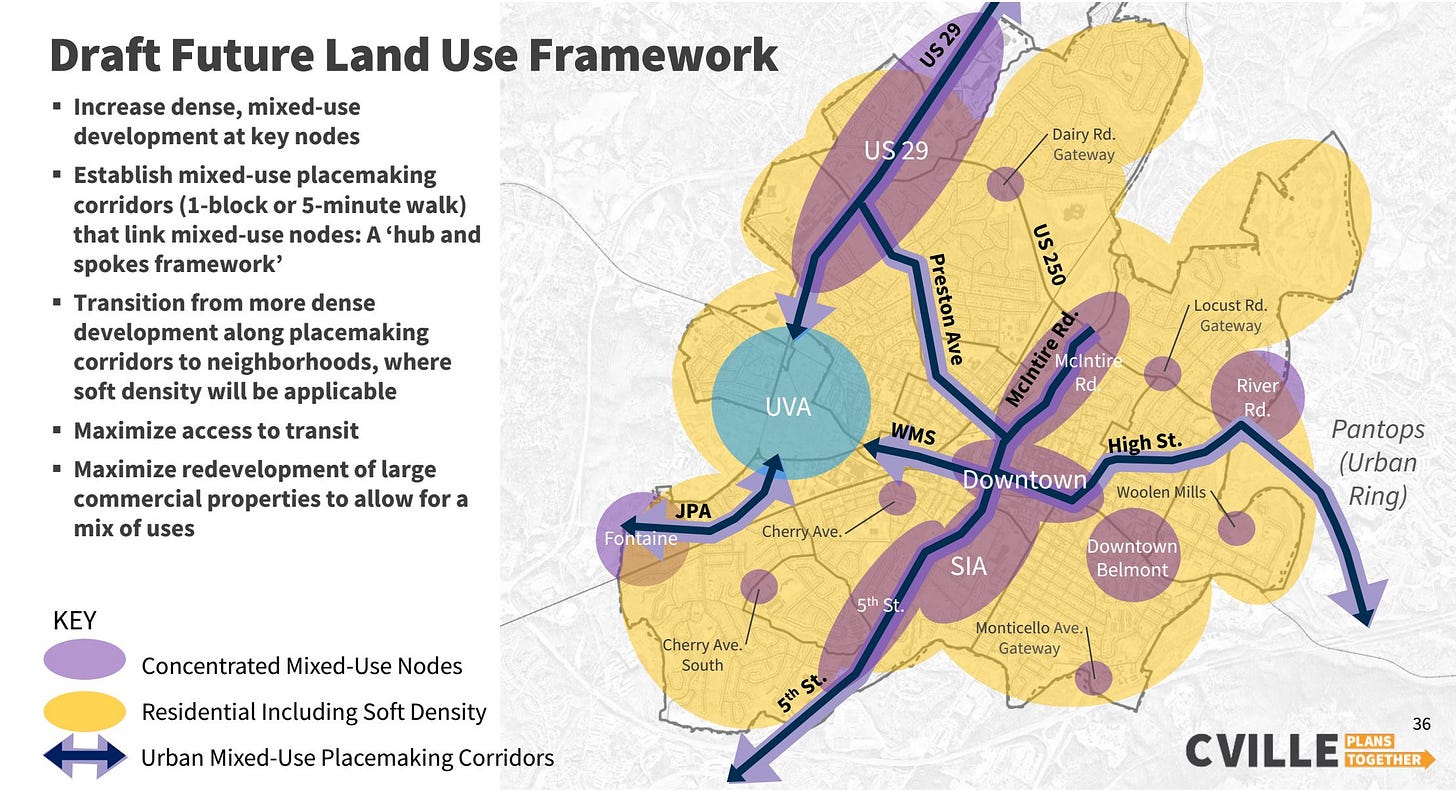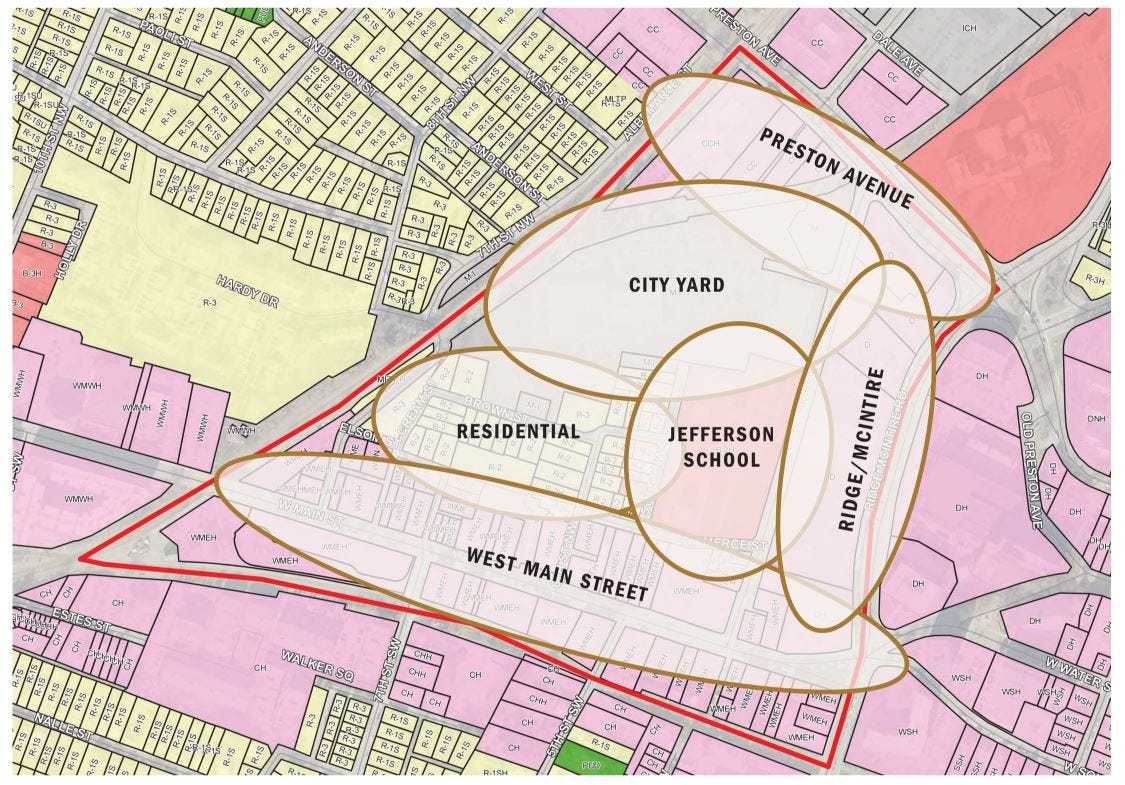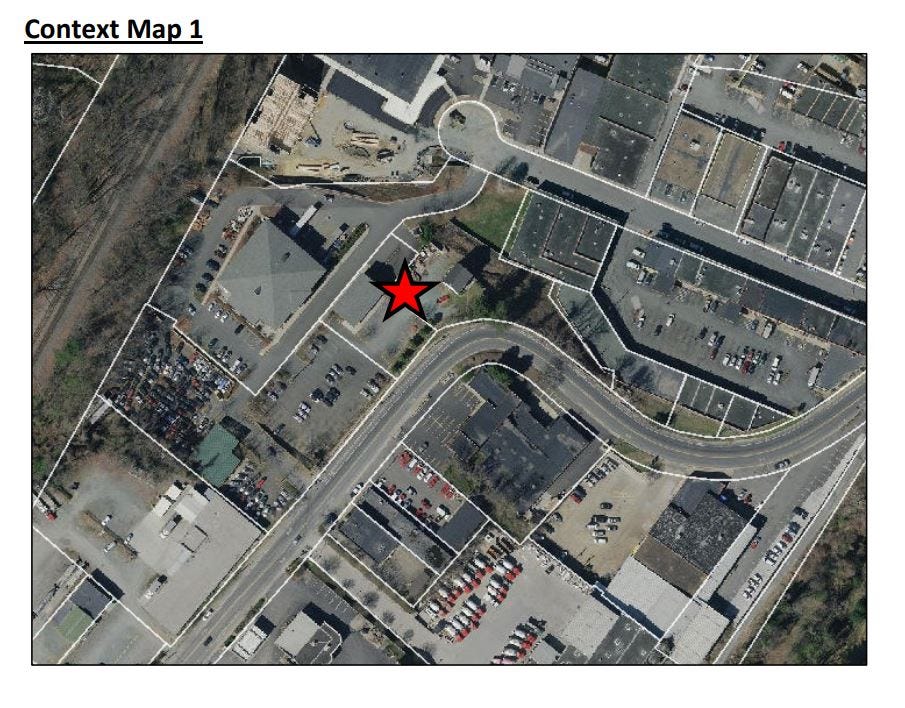This week marks the one-year anniversary of the “before times” when meetings were held in person in greater Charlottesville. We still don’t when we’ll be able to return to administrative buildings, but for now, many have adjusted to a new normal where meetings can be attended with relative ease — as long as you have the Internet.
But with vaccinations up and new case counts declining for now, it’s time to think about what it will be like when it’s safe to be in government meetings in Albemarle, Charlottesville, Fluvanna and Greene. Of course, in-person meetings never stopped in Louisa and Nelson, perhaps a reflection of the fact that many in those rural communities don’t yet have reliable Internet.
Both of those counties have now announced plans for universal broadband access in the coming years. Last week, the Louisa Board of Supervisors announced a $15 million investment in a public-private partnership to lay fiber to every structure in the county. What will those communities look like in five years?
So many questions about this area, and I’m here to ask them and sift through the answers. Thanks as always to the Piedmont Environmental Council for their support in this endeavor.
Monday, March 8, 2021
Last week, the Charlottesville City Council endorsed an affordable housing plan put together by Rhodeside & Harwell and HR&A Advisors that charts a pathway for increasing the number of homes that have rents or sale prices within reach of people who make less than the area median income. The plan is one of three aspects of the Cville Plans Together initiative, which also seeks to complete a new Comprehensive Plan for the city as well as a rewrite of the zoning code.
“Land use planning and development in Charlottesville, as in many places, has not always been equitable for all people,” reads the project’s website. “In order for the City’s plans to be both meaningful and effective, the issue of equity must be addressed.”
A steering committee consisting of more than a dozen stakeholders will meet virtually at 3:30 p.m. to discuss the next steps. One of those include adoption of something called the Future Land Use Map which when adopted as part of the Comprehensive Plan will provide direction of the level of intensity desired for every part of the 10.4 square miles of Charlottesville.

The city Planning Commission took a look at this at a work session on February 23, 2021. Did you watch? If not, you can review the tape at this link.
If you’re interested in seeing what the steering committee has to say, tune in Monday afternoon. (meeting info)
Other meetings:
- Fluvanna County’s Economic Development Authority meets at 5 p.m. (agenda)
- Fluvanna County’s Economic Development & Tourism Advisory Council (EDTAC) meets at 6:30 p.m. (agenda)
Tuesday, March 9, 2021
On March 1, the Charlottesville City Council endorsed the Cherry Avenue Small Area Plan, which seeks to guide development in a portion of the city vulnerable to development that may not be in the best interests of the people that currently live there. Now it is part of the Comprehensive Plan as an amendment to the 2013 version.
Tonight, the Charlottesville Planning Commission and City Council have a joint public hearing on the next attempt to define on paper what the community wants to have happen in a specific geographical area. This time it is the Starr Hill Neighborhood Community Vision Plan, which offers up future thoughts on redevelopment of 47.7 acres of land including the City Yard and the area around the Jefferson School. Council approved $500,000 for the development of the vision in November 2018.
“A key aspect of the Starr Hill Vision Plan was ensuring that the voices of residents and members of Charlottesville’s Black business community were central to the process,” reads the website for the plan, which has been shepherded by the nonprofit New Hill Development Corporation. “The engagement process was central to clarifying the needs of the community, strategizing for the future of the community, and envisioning equity within the community.”
The plan details how this is intended to come about, and also describes why the proponents believe it should. The section on “Economic Context and Starr Hill’s Assets” describes how the economic success of Charlottesville in recent years has not been shared by all.
“The benefits of this growth, and the attractiveness of the area, are not shared equally across racial and ethnic groups,” reads page 14 of the plan. “Black residents’ median incomes are less than 60% of that of whites, and unemployment rates are double. The Starr Hill neighborhood itself is relatively well off, with Census data indicating a median income across all households of approximately $50,000—nearly the same as that of the city overall. At the same time, the broader Starr Hill/Fifeville/10th and Page area, which has a substantially larger proportion of Black residents, has a median income of only $38,000, 25% lower than the city and Starr Hill alone.”
The plan’s vision has six guiding principles:
- A more equitable community
- Promote Black prosperity
- Continuous learning
- Belonging and inclusion
- Strong connectivity
- Respect existing residential fabric
Plans deserve to be read, and I encourage you to take a look. Much of the land use component depends on the future of the City Yard, according to the plan.
“A transformed City Yard will be a significant mixed-use, live/work development that complements Starr Hill’s existing residential and cultural assets,” reads page 59 of the plan.
The City Yard is currently where the Public Works Department keeps all of its vehicles. Soon after Council approved the funding for this vision, $300,000 was programmed in the budget for fiscal year 2020 for a study of possible environmental remediation that might be required before any redevelopment of the 10+ acres is developed. The New Hill plan describes how that might happen. (FY20 budget – page L-9)
The Charlottesville Planning Commission begins at 5:30 p.m. (meeting info)

After the Starr Hill discussion, there will be a public hearing on an amendment to a previous Special Use Permit for the Harris Street Apartments. Council approved a request for the property to have up to 43 units per acre, but now the applicant needs that increased to 50 units per acre due to site constraints. The project would build up to 120 dwelling units on the site, but the narrative states 105 would be built. A community meeting for this change was held on February 17, 2021.
The narrative also states that this use would be “harmonious” with surrounding areas.
“McIntire Plaza is home to over one hundred small businesses and has grown extensively over the years, most recently with the addition of 36 residential units, and 32,000 SF of new and renovated commercial space,” reads the applicant’s narrative.

The Charlottesville Economic Development Authority meets at 4 p.m. One of the items on the agenda is a discussion of two upcoming sessions the Office of Economic Development is holding on March 17 and March 18 to get feedback on a recovery plan post-pandemic. There will also be updates on efforts by the city to help businesses survive the changes of the last year, and prepare for the future. (meeting info)
Other meetings:
- The Greene County Board of Supervisors has a light meeting that continues last week’s budget work session. This begins at 6:30 p.m. (agenda)
- The Nelson County Board of Supervisors meets at 2 p.m. in person. They also meet again at 7 p.m. (agenda)
- Fluvanna’s Planning Commission meets at 6 p.m. for a work session on the 2040 Comprehensive Plan. There are four hearing on the agenda, which requires me to use sub-bullets for the first time: (agenda packet)
- Special use permit for a gas station and car wash at intersection of Lake Monticello Road and Route 53
- Rezoning from agricultural to business for a property on Lake Monticello Road
- A special use permit for the above property to permit a contractor’s storage yard
- A special use permit for a solar energy facility on South Boston Road
Wednesday, March 10, 2021
Last week, the Albemarle Board of Supervisors held a public hearing for County Executive Jeffrey Richardson’s $466 million budget for FY2022. As Allison Wrabel reports in the Daily Progress, no one from the public spoke.
That will no doubt change as Supervisors begin to work through the document in a series of work sessions that begin at 3 p.m. One topic for discussion will be funding for broadband initiatives that will be overseen by the Albemarle Broadband Authority (ABBA). They continued their most recent meeting in order to be able to participate in the Supervisors’ discussion.
Other meetings:
- The Fluvanna Board of Supervisors has a budget work session beginning at 4 p.m. (agenda)
- Charlottesville’s Tree Commission meets at 5 p.m. One of the topics is a discussion of neighborhoods where the amount of tree canopy is not high. (meeting info)
- The Crozet Community Advisory Committee meets at 7 p.m. On the agenda is a discussion of the land use section of the Crozet Master Plan. One of the topics has been whether the plan should encourage a middle range of residential density. Staff will present a summary. (meeting info)
- The three candidates for the two Democratic nominations for Charlottesville City Council will meet in the first campaign event of the 2021 election where people can be introduced to those seeking the positions. The Fry’s Spring Neighborhood Association will hold the event virtually on Zoom at their monthly meeting which begins at 7 p.m. (zoom link)
Thursday, March 11, 2021
In order to address concerns about traffic congestion on Rio Road East, Albemarle County has invested in a study of Rio Road. The public phase of this campaign begins with a series of virtual meetings beginning at 6 p.m. tonight. (meeting info)
“Over the next year, we will create opportunities to be in conversation with you, to share information with you, and to collaborate with you on what the future of the Rio Corridor might be,” reads the project’s website. “It is critical that everyone who walks, drives, rides, bikes, and rolls participate and share in the vision-building with us.”
As the region grows, this transportation corridor will become more important as way to get people to and from where they live and where they do other things. These plans offer a way for people to get involved in the future.
In other meetings:
- The Albemarle Conservation Easement Authority meeting begins at 4:45 p.m. There is no agenda posted yet. (meeting info)
- The Charlottesville Parks and Recreation Advisory Committee meets at 5:30 p.m. No agenda was available at production time. (meeting info)
- Charlottesville City Council will hold a second budget work session for FY22 beginning at 6 p.m. (meeting info)
- Charlottesville’s Police Civilian Review Board will meet at 6:30 p.m. (meeting info)
- The Places29-North Community Advisory Committee meets at 7 p.m. There is no agenda posted yet, but I will be tuning in to hear if there is any discussion of the RST Development that was deferred last week following a long public hearing before the Albemarle County Planning Commission (meeting info)
Friday, March 12, 2021
Three meetings today.
Charlottesville’s Historic Resources Committee meets virtually at 11 a.m. One item on their agenda is a public engagement campaign to collect input from descendants of people who were traded as property in Court Square. (meeting info)
At noon, Albemarle continues a series of informational meetings on stream health. This time around, “Albemarle County’s Chief of Environmental Services and County Engineer will talk about mandated and voluntary County water protection policies and programs.” (meeting info)
Also at noon, Albemarle holds the second drop-in session for the Rio Road Corridor Plan. (meeting info)
This post was contributed by Sean Tubbs. Sean is a journalist working to build a new information and news outlet centered around Charlottesville and Virginia. In 2020, he launched a daily newscast and newsletter and also created a semi-regular podcast on the pandemic.
Support for Sean’s “Week Ahead” update comes from The Piedmont Environmental Council.
